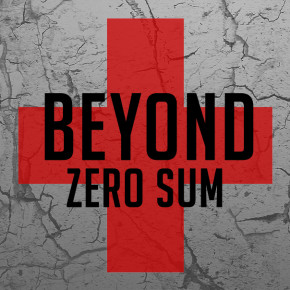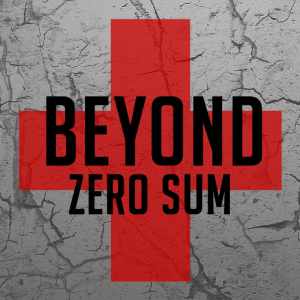 On March 25, the satirical news organization The Onion published an op-ed written by the president of Syria: “Hello. My name is Bashar al-Assad. I am the president of Syria, and in the last two years, you–the citizens of the world and their governments–have allowed me to kill 70,000 people … Because I’m able to continue doing this, I can only conclude that killing nearly 100,000 people must be an acceptable thing.” Seventy thousand is the figure that’s usually quoted in the press, but it’s likely to be much higher than that due to deaths that are not normally registered.
On March 25, the satirical news organization The Onion published an op-ed written by the president of Syria: “Hello. My name is Bashar al-Assad. I am the president of Syria, and in the last two years, you–the citizens of the world and their governments–have allowed me to kill 70,000 people … Because I’m able to continue doing this, I can only conclude that killing nearly 100,000 people must be an acceptable thing.” Seventy thousand is the figure that’s usually quoted in the press, but it’s likely to be much higher than that due to deaths that are not normally registered.
Stephen Cornish, executive director of Doctors Without Borders in Canada, called them the “silent casualties” of the conflict: namely, civilian patients succumbing to serious illness due to the systematic degradation of the health care infrastructure in the region. Such degradation includes the targeted destruction of clinical facilities and staff, the loss of basic utilities such as running water and electricity, the loss of waste collection in opposition-controlled areas, the scaling back of routine vaccinations, and the detention, torture and murdering of physicians. Furthermore, it has been estimated that about 50% of doctors have fled the country.
The British Medical Journal ran a news article a couple of weeks ago which discussed the observations of Zaher Sahloul, a pulmonary specialist in Chicago. During a recent visit to Aleppo, he noted that the city with over 2 million inhabitants has no CT scanners, 10 incubators, 10 dialysis machines, no oral antibiotics and a dwindling supply of IV saline. Moreover, medical students have to perform advanced medical procedures and unqualified personnel carry out nursing duties.
The state of affairs in the city likely generalizes to the rest of the region. The eroding infrastructure coupled with poor sanitation and overcrowding has led to hepatitis A and leishmaniasis outbreaks.
Dr. Ammar Diar Bakerly, who directs medical care in opposition-controlled Aleppo, commented on the disintegration in The New York Times: “We left high salaries, we left our jobs, we left our rank in society. We left everything to get our dignity. This is the price we have to pay, and it is a cheap price to get our freedom from the tyrant.”
On the spectrum of opinion, that’s certainly one end. American medical students who identify with American history can choose to agree or disagree. Regardless, the situation ought to concern any decent human being, Syrian or not. Writing in The Lancet, Stanford physician Rajaie Batniji, who has previously visited the region, declares that the unfolding crisis is likely to become the most egregious humanitarian disaster of the 21st century. Given that there is no endgame in sight, the American taxpayer, who funds the opposition, will have to renegotiate her commitment to this legacy.
Members of the medical profession have a unique venue within which to both act and comment on human affairs, both foreign and domestic. And medical students, though still in training, are part of that community as evidenced by the above-referenced BMJ article along with similar accounts. For example, a year ago, Amnesty International reported the discovery of three mutilated and burnt bodies: two fourth-year medical students at Aleppo University and a second-year English literature student working as a first-aid medic. They had been arrested while working with a team of doctors and nurses in jerry-rigged “field hospitals” set up to treat demonstrators during a protest in Aleppo. One of the fourth-years was found to have a gunshot wound to the head along with his hands bound behind him. His limbs were broken, his fingernails were missing, and his flesh was stripped to the bone.
I can remember putting together a portfolio of “clinical exposure” before coming to medical school. I stood around the emergency department, stocked the supply closets, and occasionally delivered blankets to patients. I wore a red vest.
Those who think there’s nothing they can do are mistaken. Those who think there’s an easy solution are similarly misguided. One thing is for sure, organization is essential.
Some members of the medical community have already begun the effort to shift the focus from ousting Assad to addressing the humanitarian situation. As an example, Physicians for Human Rights called on the UN Security Council to refer the situation to the International Criminal Court. Another is the previously-mentioned Zaher Sahloul, president of the Syrian American Medical Society who incidentally attended medical school with the Syrian president (Assad was an ophthalmologist). According to Sahloul, medical school did not prepare him for sneaking through barbed-wire fences and avoiding border guards.
The truth is that medical school doesn’t prepare students for everything and certainly not for this. Full-blown physicians or faculty members are not much better off: no one has to care if they don’t want to. But recent comments made by a Syrian physician in The Lancet are difficult to ignore:
“Amid the chaos, at least 3 million Syrians have become displaced inside and outside of Syria. The UN places the current death toll of Syrian civilians, troops, and rebels at more than 70,000. However, the real number of deaths could be higher because many of those killed might not have been registered. I myself have relatives (civilians) who were killed in Aleppo but whose deaths were not registered by either the rebels or the government.
The Syrian people do not understand why the ongoing Syrian humanitarian and medical crises are being ignored by the world and why nothing is being done to protect civilians in Syria.”
Recall the satirical Onion article which expressed the same sentiment. This deeply unsettling and sober report appeared only two weeks later. In my frustration, I’ve decided to write this column to document my interpretation of the events unfolding in Syria as well as the responses by the international community as I become aware of them. In doing so, I hope to provoke and invigorate the students who read this magazine. Any and all who feel similarly engaged should e-mail me.
Beyond Zero Sum is a column that examines the civilian consequences of the Syrian civil war as well as the responses of the international medical community to the rapidly escalating crisis. It takes its name from a reflection by Bill Clinton on humanity in the 21st century: “The more complex societies get and the more complex the networks of interdependence within and beyond community and national borders get, the more people are forced in their own interests to find non-zero-sum solutions. That is, win-win solutions instead of win-lose situations because we find, as our interdependence increases, that, on the whole, we do better when other people do better as well.”

